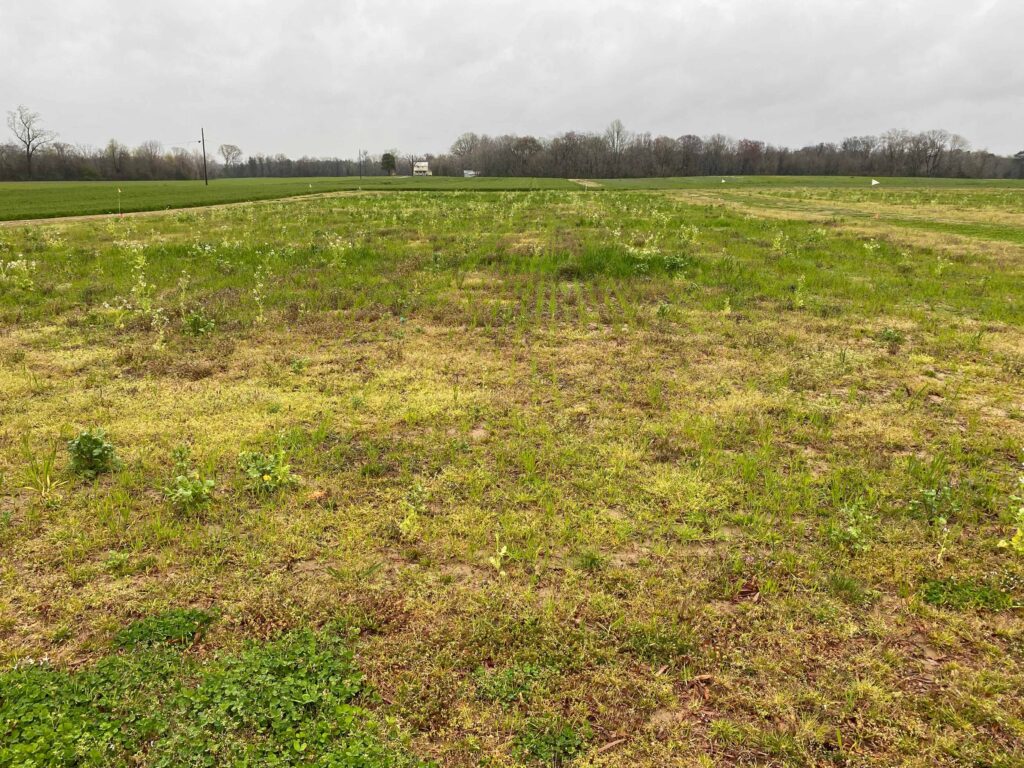A key element of VBC’s Code of Good Practice is the research that supports its goals of protecting the environment, minimizing adverse social impacts, and promoting education and awareness. A recent emphasis on research into per- and polyfluoroalkyl substances (PFAS) will enable VBC and its partners to gain a deeper understanding of PFAS presence in biosolids and their effects on soil and crops. VBC is sponsoring a study at Virginia Tech’s Eastern Virginia Agricultural Research and Extension Center (AREC) in Warsaw, VA, which investigates the effects of biosolids and PFAS on soil. This research is part of a broader national study led by Dr. Ian Pepper at the University of Arizona. More details about the study’s initiation in May 2023 can be found here, along with the research update from Chris Burbage of the Hampton Roads Sanitation District (HRSD) and Dr. Joseph Oakes, Superintendent of the Eastern Virginia AREC.
After the soybean harvest in October 2023, a winter cover crop mixture of wheat and daikon radish was sown. In April 2024, this cover crop will undergo burndown – a glyphosate spray treatment to eliminate the crop and weeds – before corn is planted later that month. After the corn is harvested, soft red winter wheat will be sown in Fall 2024.
This May, Burbage and the HRSD research team will revisit the research plot to take samples, a significant event marking roughly one year since the application of Bloom, DC Water’s Class A Exceptional Quality biosolids product. The team will adhere to the sampling protocol established by Dr. Pepper, results of which may shed light on how different PFAS analytes are transformed (chemically, physically, and biologically) as they vertically migrate through the soil column. Additionally, corn samples will be collected at the season’s end to evaluate whether PFAS analytes accumulate in various portions of corn stalk, leaves, and seeds.
VBC looks forward to continuing its reporting on this research and outcomes in the coming months.
